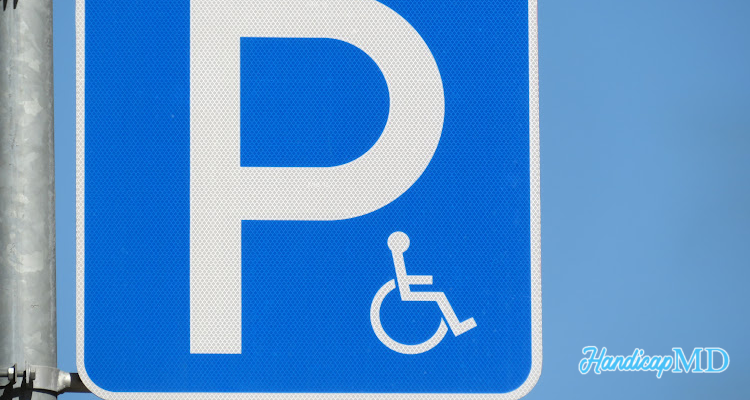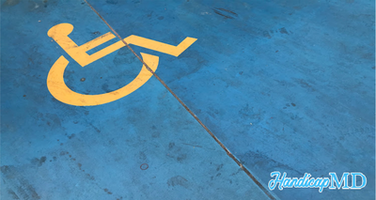
Tips for Displaying Your Handicap Placard Correctly in Indiana: A Comprehensive Guide
Introduction
Navigating the regulations for displaying handicap placards correctly in Indiana is crucial for ensuring accessibility and avoiding penalties. Whether you're a new permit holder or need a refresher, this guide provides comprehensive tips and insights to help you comply with Indiana's requirements effectively.
Understanding Handicap Placards
Handicap placards, also known as disability parking permits, are vital for individuals with mobility limitations. These special permits allow designated parking spaces close to entrances, making it easier for people with disabilities to access facilities and services.
Benefits of Having a Special Permit
One cannot underestimate the positive impact of having a disabled parking permit. From improved accessibility to added convenience for individuals with disabilities, these permits play a crucial role in enhancing the overall quality of life.
Obtaining Your Placard
To obtain a disability permit, individuals must meet specific eligibility criteria outlined by the Bureau of Motor Vehicles (BMV). These criteria typically include:
- Having a qualifying disability certified by a licensed healthcare provider.
- Providing necessary documentation, such as medical records or a physician's statement, to support the disability claim.
- Completing the required application forms provided by the BMV.
Once approved, applicants receive their handicap permits, along with instructions on proper display and usage.
Types of Passes
Indiana handicap placards offers two types: permanent and temporary. Each type serves individuals with different needs:
- Permanent Permit: Issued to individuals with permanent disabilities that significantly impair mobility. These passes typically have an extended validity period before requiring renewal.
- Temporary Permit: Granted to individuals with temporary disabilities or medical conditions that affect mobility for a limited duration. Temporary ones have shorter validity periods and require renewal as needed.
Expiration and Renewal
Disability passes in Indiana have expiration dates to ensure continued eligibility and prevent misuse. It's essential to keep track of your permit's expiration date and initiate the renewal process in advance to avoid interruptions in accessibility privileges.
Renewal procedures may vary depending on the type and individual circumstances. Common renewal requirements include:
- Submitting updated medical documentation if necessary.
- Completing renewal forms provided by the BMV.
- Paying any applicable renewal fees.
Displaying Your Permit
Proper display of your pass is crucial for avoiding fines and ensuring accessibility. Follow these guidelines to display it correctly in IN:
- Hang the Permit from the Rearview Mirror: Hang your pass from the rearview mirror when parked in a designated parking space.
- Ensure Visibility: Make sure the permit's expiration date and identification number are visible from the outside of the vehicle.
- Remove the Permit While Driving: Remove the pass from the rearview mirror while driving to maintain clear visibility.
- Store the Permit Securely: When not in use, store your special pass securely to prevent theft or damage.
Temporary Placard Usage
Temporary passes are issued for specific durations based on the individual's medical condition. Here's how to use it effectively:
- Adhere to Expiration Dates: Stop using the pass once it expires, and return it to the BMV if no longer needed.
- Renew Promptly: Initiate the renewal process before the it's expiration date to avoid interruptions in accessibility privileges.
- Follow Display Guidelines: Display the temporary pass according to the same guidelines as permanent ones.
Transferability and Misuse
These are non-transferable and can only be used by the individual to whom they are issued. Misuse of passes, including lending them to others or using expired ones, is subject to penalties. Common penalties for the misuse may include fines, confiscation, and even legal action in severe cases.
FAQs (Frequently Asked Questions)
How do I apply for a disability pass in IN? To apply, you must meet the eligibility criteria set by the BMV, which typically includes having a certified disability and providing necessary documentation from a healthcare provider. Once eligibility is confirmed, you can submit an application to the BMV along with any required forms and fees.
What is the expiration period for permits in IN? These permits in Indiana have varying expiration periods depending on whether they are permanent or temporary. Permanent ones typically have longer validity periods, while temporary ones are issued for shorter durations based on the individual's medical condition. It's important to check the expiration date on your permit and renew it promptly to maintain accessibility privileges.
Can I use my disability pass in vehicles other than my own? These are issued to individuals rather than specific vehicles, allowing them to be used in any vehicle transporting the authorized holder. However, it's essential to ensure that the pass is displayed correctly and that the authorized holder is present when utilizing designated handicap parking spaces.
What are the consequences of misusing a permit in Indiana? Misusing a permit in Indiana, such as lending it to others or using an expired one, can result in penalties imposed by law enforcement or the BMV. Penalties may include fines, confiscation, and potential legal action. It's crucial to use these permits responsibly and in accordance with Indiana's regulations to avoid consequences.
How do I renew my disability pass in IN? To renew, you may need to provide updated medical documentation if required, complete renewal forms provided by the BMV, and pay any applicable renewal fees. It's advisable to initiate the renewal process before your placard's expiration date to ensure uninterrupted accessibility privileges.
Can I park in designated parking spaces with an expired permit in IN? No, parking in handicap spaces with an expired permit is not permitted in IN. It's essential to renew your handicap placard before it expires to avoid any disruptions in accessibility privileges. Failure to renew promptly may result in penalties and loss of parking privileges.
Conclusion
Displaying your handicap placard correctly in Indiana is essential for ensuring accessibility and compliance with state regulations. By following the guidelines outlined in this comprehensive guide, you can navigate permit requirements with confidence and make the most of the accessibility privileges available to you.
.png)






